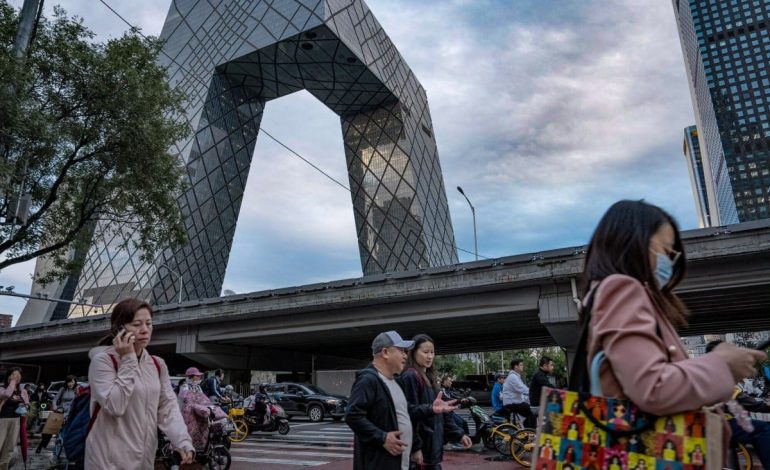China’s government has pledged to address its lingering economic issues and meet its annual economic and social development goals, according to state media reports from a cabinet meeting.
This announcement comes as China’s economy faces mounting challenges, including slowing growth, weak consumer demand, and a struggling property market.
In recent weeks, Chinese authorities have rolled out several measures aimed at stabilizing the economy. Pan Gongsheng, governor of the People’s Bank of China, announced a series of actions, including an 800 billion yuan ($114 billion) injection into the stock market and adjustments to banking regulations, freeing up an additional 1 trillion yuan in loans. Interest rates were also lowered to encourage lending, and down payment requirements for homebuyers were reduced in an effort to stimulate the ailing property sector.
These moves sparked optimism on Wall Street, with investors hoping that the Chinese government’s interventions would help revive its slowing economy. US financial markets responded positively, with the Nasdaq Golden Dragon Index, which tracks companies doing business in China, jumping 9% following the announcements.
Many market analysts saw the policy changes as a sign that Beijing is finally taking steps to halt the economic downturn. Lower interest rates, looser lending policies, and potential mergers and acquisitions were hailed as measures that could unlock new economic activity and boost investor confidence.
However, some experts remain skeptical about the effectiveness of these measures. While the announced policies provide short-term relief, deeper structural problems persist in China’s economy. Consumer demand remains weak, and the property market is undergoing a prolonged correction. Seventy percent of Chinese household wealth is tied to real estate, which has seen significant declines in value—by as much as 30% in Tier 1 cities since 2021, according to analysts.
Despite easier access to loans, many Chinese consumers and businesses are hesitant to borrow due to high levels of existing debt. Retail sales grew by just 2.7% in the second quarter, reflecting cautious spending habits in an uncertain economic environment.
Michael Pettis, a finance professor at Peking University, noted that while China’s supply-side measures could support production, they may do little to address the core issue of weak demand. Without stronger consumer spending, these policies are unlikely to generate sustained economic growth.
As Beijing navigates these challenges, some experts are calling for more aggressive fiscal policies to complement the recent monetary measures. Yu Yongding, a former advisor to the People’s Bank of China, urged the Ministry of Finance to introduce additional fiscal stimulus to fully restore market confidence. He emphasized that, while the recent announcements have been well-received, they need to be backed by broader efforts to stimulate demand and support key sectors of the economy.
With only three months left in the year, achieving the government’s target of around 5% GDP growth in 2024 is seen as increasingly difficult. Policymakers are under pressure to implement further actions to prevent the economy from slipping into a deflationary spiral.
With input from Business Insider, Reuters, and South China Morning Post.









